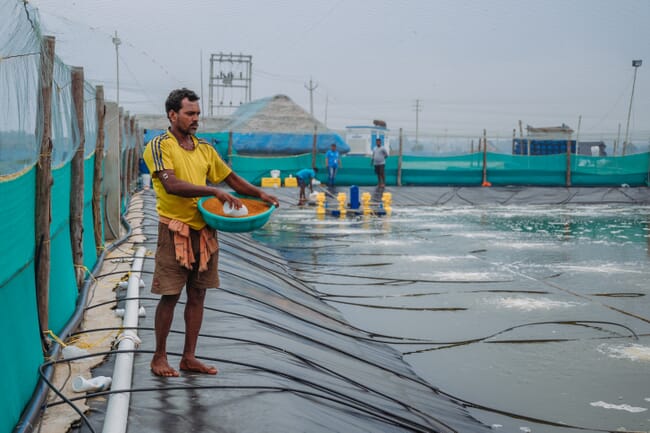
The complaint, co-filed by Corporate Accountability Lab and the Southern Shrimp Alliance, states that BAP certification represents Indian shrimp products as safe, responsible, and ethically farmed seafood despite CAL’s findings on the use of exploitative labour practices, including forced labour, as well as the widespread presence of banned antibiotics and environmentally damaging practices.
Shrimp is America’s favourite seafood, and India supplies around 40 percent of all shrimp consumed in the United States. Many shrimp products on US grocery store shelves display the popular BAP certification label, implying compliance with BAP’s human rights and environmental standards.
“GSA, BAP, and retailers promote BAP certification as a tool consumers can use to ensure the seafood meets strict environmental and labour standards,” explained Charity Ryerson, executive director of Corporate Accountability Lab, in a press release. “In practice, BAP certification is little more than a marketing tool. It misleads consumers into thinking all is well, while workers at BAP-certified facilities report severe exploitation and dangerous working conditions, and communities suffer from pollution that has destroyed fisheries and contaminated drinking water.”
During Corporate Accountability Lab’s three-year study of India’s shrimp industry, researchers claimed that BAP-certified facilities often exhibited working and environmental conditions that were indistinguishable from those at uncertified facilities.
CAL also alleges that numerous BAP-certified facilities violate Indian laws and international human rights norms in addition to BAP standards. Conditions found at these facilities include forced labour, abusive and unsanitary living conditions, restriction of movement, wage underpayment, and harmful groundwater contamination damaging nearby villages, starkly contradicting BAP’s advertised claims of ethical and responsible practices on its websites, social media, and certification seal.
Certification emphasising social responsibility and sustainability drives significant change in consumer interest and sales growth. A recent study by NielsenIQ indicated that products branded with environmental, social and governance (ESG) claims averaged 8 percent higher cumulative growth over a five-year period than similar products not making such claims. Another 2024 survey found consumers would be willing to pay nearly 10 percent more for products that were sustainably produced or sourced goods. Over the years, the FTC has made clear that certifiers are held to the same standards as marketers, warning certifiers to consider consumer perception of their certification system.
The Southern Shrimp Alliance analysed shrimp entry lines refused by the FDA in 2024. It found that 87 percent of the shrimp entry lines rejected for antibiotic contamination originated from BAP-certified facilities. Despite testing only 0.1 percent of imports for banned antibiotics, the FDA refused 71 entry lines of adulterated shrimp between January and September 2024, of which 62 were attributed to BAP-certified shippers.
“BAP’s industry-led certification scheme has clearly failed to fix the many safety, ethical and environmental problems plaguing the Indian shrimp sector,” said John Williams, executive director of the Southern Shrimp Alliance. “Rather than improving conditions, the certification often masks exploitative practices, misleading US consumers into believing they’re purchasing ethical and sustainable products. We urge the commission to address as soon as possible this marketing-related practice that hides egregious human rights violations.”




